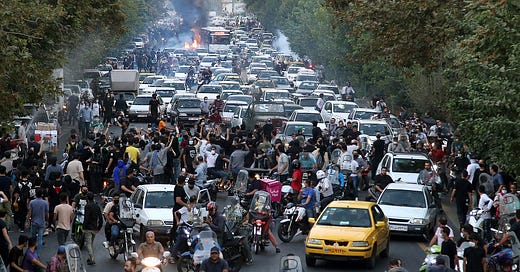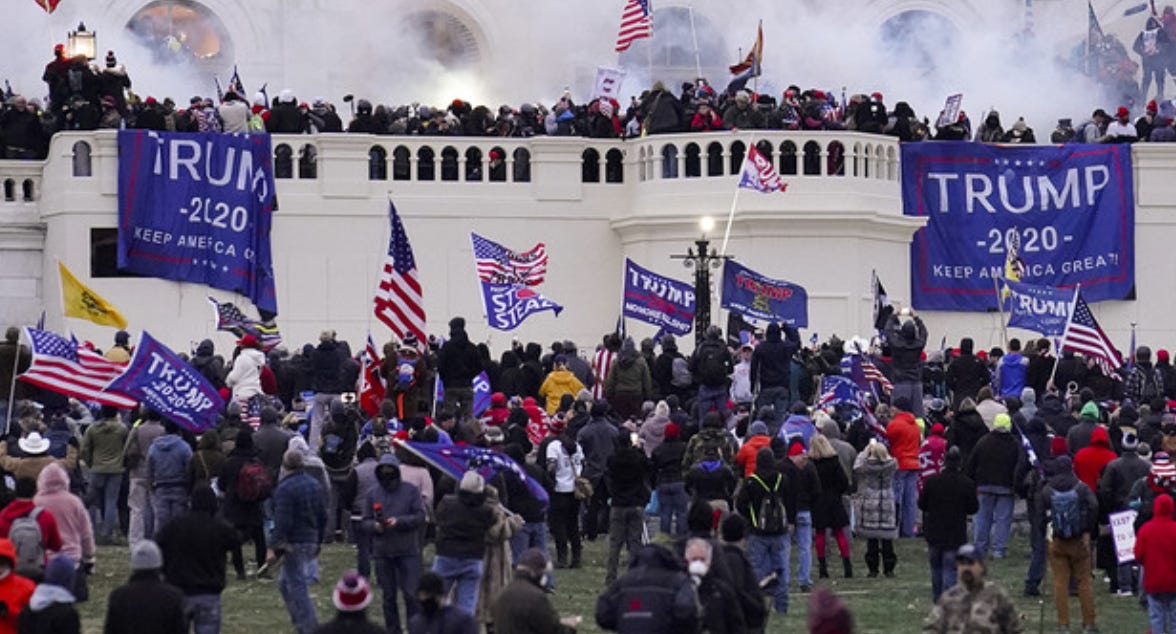Emerging research is charting the role social media plays in fomenting violence around the world, and when I talk about this in my First Amendment law class, the reaction is — as it might be anywhere — “Yeah, but not here.”
Of course, that’s inaccurate. In fact, there’s a significant body of research that draws a thick line between social media — where the algorithms are set to promote the most divisive and outlandish posts — and the Jan. 6th, 2021, attack on the U.S. Capitol. That insurrection was perpetrated by Americans who falsely believed Donald Trump had been reelected president, who in fact wasn’t reelected — not by a long shot.
Yet the lie persists. And where has that lie been pumped over and over again into the media bloodstream? Social media.
I just finished “The Chaos Machine,” by New York Times reporter Max Fisher, and I am rethinking everything I thought I knew about social media, especially YouTube and Facebook, the networks that are, writes Fisher, the biggest purveyors of swill. These and other networks operate with scant controls (certainly not from the government, and very little from inside the behemoth companies) and so it’s the wild west but without ponies.
On these two platforms, wild misinformation that is damaging at best takes rot. A conspiracy theory is just a few clicks away and if you don’t believe me, load up a YouTube video and then see down which rabbit hole the network leads you. I clicked on YouTube and called up the first video available, which was Martin Short picking on Conan O’Brien. Then I sat back, and it wasn’t 30 minutes before I was suddenly being fed anti-vaccination nonsense by a fake doctor with a fake tan.
Granted, I don’t tend to passively let any platform feed me, but many other people do.
Governments unconstrained by the idea of freedom of speech have certainly taken notice. A young woman who died while in custody for not wearing a hijab in Iran has sparked significant street protests, so what has the Iranian government done? Turn off Instagram and WhatsApp, because that’s where protest information — where and when — is being spread.
In 2015, a mob beat to death two young pollsters in Mexico because local social media had whipped the perpetrators of violence into believing a false rumor that a ring of kidnappers were targeting the children of their town. These two young men were strangers in town, and for the mob, that was enough to fit the description of criminals intent on hurting their children.
And so the mob killed them.
In 2018, after social-media-fueled violence broke out in Sri Lanka, the government shut down social media platforms. What happened? The mobs went home. From that New York Times linked story (co-written by Fisher):
In the Western countries for which Facebook was designed, this leads to online arguments, angry identity politics and polarization. But in developing countries, Facebook is often perceived as synonymous with the internet and reputable sources are scarce, allowing emotionally charged rumors to run rampant. Shared among trusted friends and family members, they can become conventional wisdom.
People who run these companies have a dance they perform every time this topic comes up for public discussion. They apologize that bad things happened. They sidestep their roles in the mayhem. They promise to do better, and even dress up to appear before Congressional committees insisting that they are the last bastions of free speech.
But is this speech really free? While all this is going on, the networks’ algorithms keep spewing out nonsense because that’s where these companies make their money — by keeping you at your screen with increasingly nonsensical content. To flip the switch on that would mean a loss in the company’s already-fabulous profits, and these corporations show no interest in losing money.
We embrace the notion that there is no such thing as a false idea, and as such, people are given broad leeway in what they can say or publish in person or online. Then it is up to us, their audience, to embrace or dismiss that idea as valid. But that is not happening with the way these networks are wired. The game is played. And I would never suggest this out loud, but wouldn’t it be interesting if we conducted a large-scale social experiment and turned off social media for two weeks prior to an election? Would the electorate be smarter? More responsible? I suppose we’ll never know.








Indeed you’re correct in your comments. Perhaps before turning off the flow of people’s minds we need to turn on the minds to be more discerning and understanding of how to parse the flood of information we get. Social media has introduced us to our neighbors and new music and more books and new authors, it has kept distant relatives closer, showed us how to finish that home improvement project, plant better food, made us laugh when we were alone or frightened, gave us a voice when we thought no one heard, gave the poor access to a megaphone only the rich had, allowed people over thousands miles help and comfort each other after natural disasters and so much more. You are so right that if those who opened the doors to these platforms were more benevolent and well meaning it would be a great service but ultimately the wrong exist in our own hearts and minds and that has been true for all the ages. We all need to work harder to seek out what is true and good and just and allow with kindness the faults of others.
You are spot on, Susan! I enjoy my early morning reads! I’m grateful.